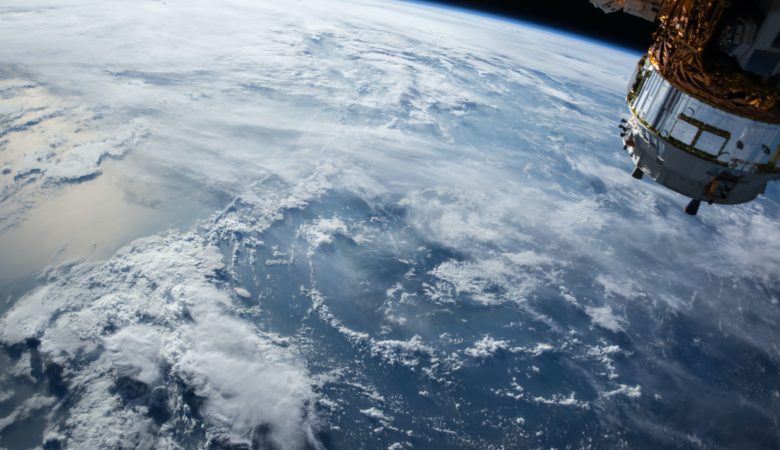We’ve Passed Earth’s Overshoot Day for 2020. Here’s What it Means.

A variety of religious, secular and federal holidays, and observances fill the calendar every year. While well-known days of celebration like the Fourth of July or Christmas get lots of attention, other more somber events are ignored or mentioned only in passing. Since 1970 that’s been the case for Earth Overshoot Day.
What is Earth Overshoot Day?
There’s a finite amount of resources on Earth. All life, human and otherwise, consume these limited natural resources. Over the years, humans have exponentially increased their usage of available resources. Previously, our planet had more resources than humans could consume in a year.
That’s no longer the case.
Earth Overshoot Day denotes the day every year when humanity has consumed more resources than the planet could sustainably generate in that time.
How is Earth Overshoot Day calculated?
An organization called the Global Footprint Network calculates the specific date every year that the planet’s biocapacity can no longer support humanity’s ecological footprint. A mathematical equation determines this date: divide the planet’s biocapacity (amount of ecological resources the planet can generate that year) by our ecological footprint, then multiply that total by 365 or:
(Earth’s biocapacity/Ecological footprint) x 365 = Earth Overshoot Day
The United Nations supply the data to determine biocapacity based on the most recent information available. Various nonprofits coordinate with the Global Footprint Network to determine the biocapacity and ecological footprint for each upcoming year.
Why does Earth Overshoot Day matter?
In 1970, Earth Overshoot Day arrived on December 29. This year, Earth Overshoot Day took place on August 22, nearly a month later than the 2019 date of July 29. But does it really matter?
Of course these dates matter! They remind us that our precious planet is incapable of sustaining life at the current resource consumption rate. As humanity continues to evolve and increase in size, Earth Overshoot Day serves as a vital measurement of the sustainability efforts we’re actively taking or ignoring.
Additionally, Earth Overshoot Day matters because current policies, practices and lifestyles threaten every person’s health. The necessary shifts in laws, regulations, methods, and techniques affect every aspect of our existence, from our food, transportation, and energy choices. If we all don’t take significant steps to move the overshoot date back, you’ll have much fewer options for remaining fit, healthy and fulfilled.
Earth Overshoot Day was later this year. That’s good, right?
If only that were the case. Yes, Earth Overshoot Day occurred more than three weeks later than it did in 2019. As you can imagine, this is directly related to the COVID-19 pandemic. This global health crisis caused a decrease in carbon emissions and resource usage. Also, deforestation slowed down considerably because the demand for these materials decreased.
The concern now is how can we push back the Earth Overshoot Day in future years as businesses re-open and everyday life returns to some semblance of pre-coronavirus normalcy. In a recent presentation from Mathis Wackernagel, Ph.D., the co-creator and current president of the Global Footprint Network said that moving the overshoot date should be done “by design and not by disaster.”
How can we #MoveTheDate?
As the Global Footprint Network and other conservation organizations work together to educate the public and influence policy, they also raise awareness online with social media campaigns such as #MoveTheDate.
In an August 20, 2020 #MoveTheDate tweet posted by the Global Footprint Network, the group shared that cutting food waste in half could push back Earth Overshoot Day by 13 days. This is just one of many methods for cutting down on the resources you consume and the waste you generate.
While there are changes we can make as individuals to our lifestyle that benefit the planet and its finite resources, world governments and international conglomerates also need to commit to more sensible consumption policies. There are strategies for one-planet prosperity that protect Earth while allowing businesses to thrive and cultivate success. Companies that embrace these methods positions themselves to maintain their competitive advantage as those enterprises that disregarded these best practices fall by the wayside.
Earth Overshoot Day 2021
As analysts calculate this date for next year, we cannot overstate the importance of acknowledging Earth Overshoot Day. Looking ahead, consider how you’re going to #MoveTheDate. From developing a food-waste reduction plan to challenging local leaders to embrace sustainability efforts, you have the power to change Earth Overshoot Day. Do it for yourself, the people you love and this incredible planet that provides us with everything we need for healthy, happy lives.

